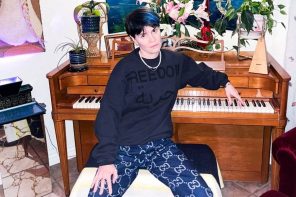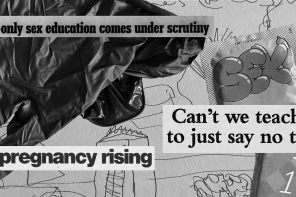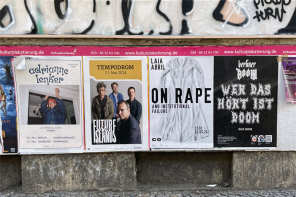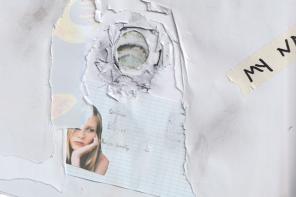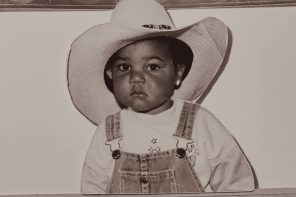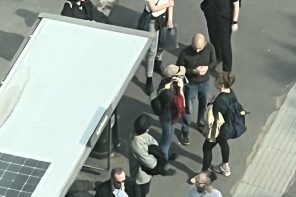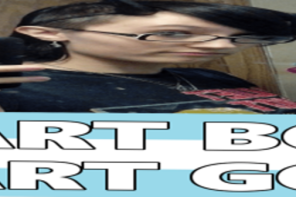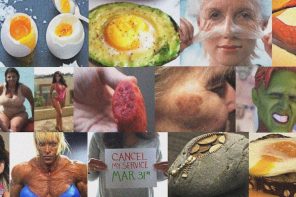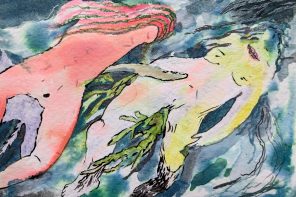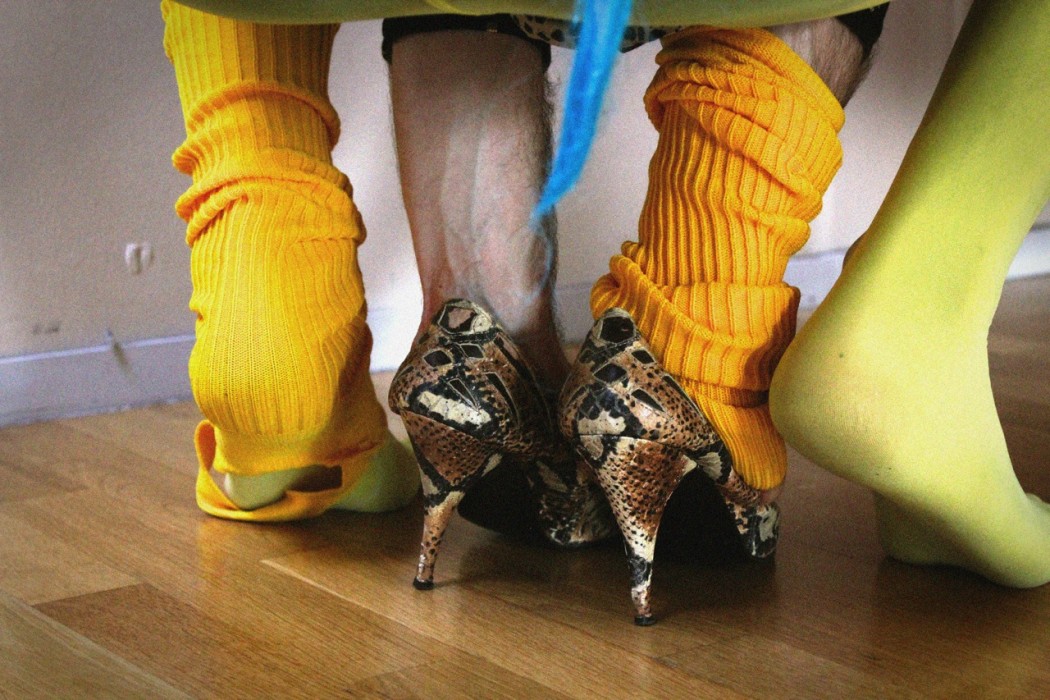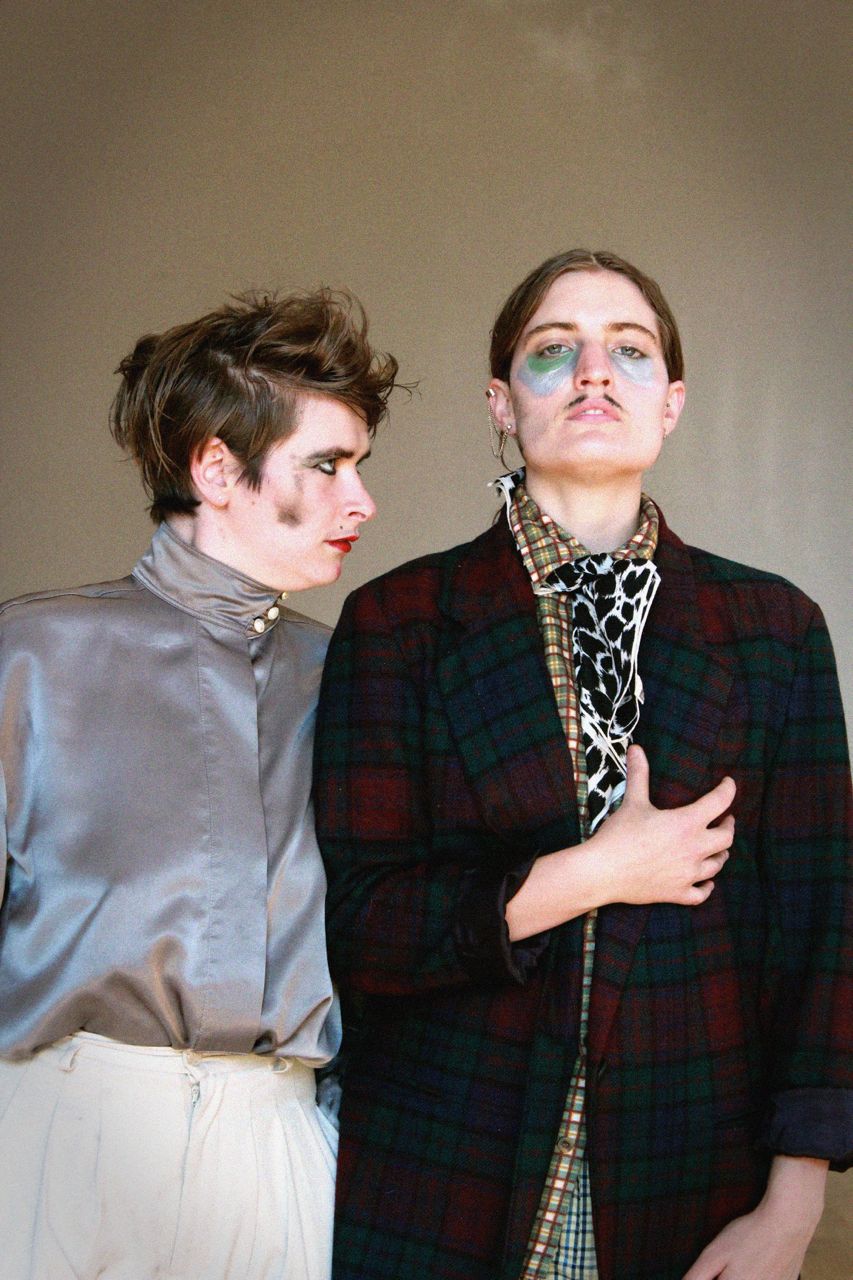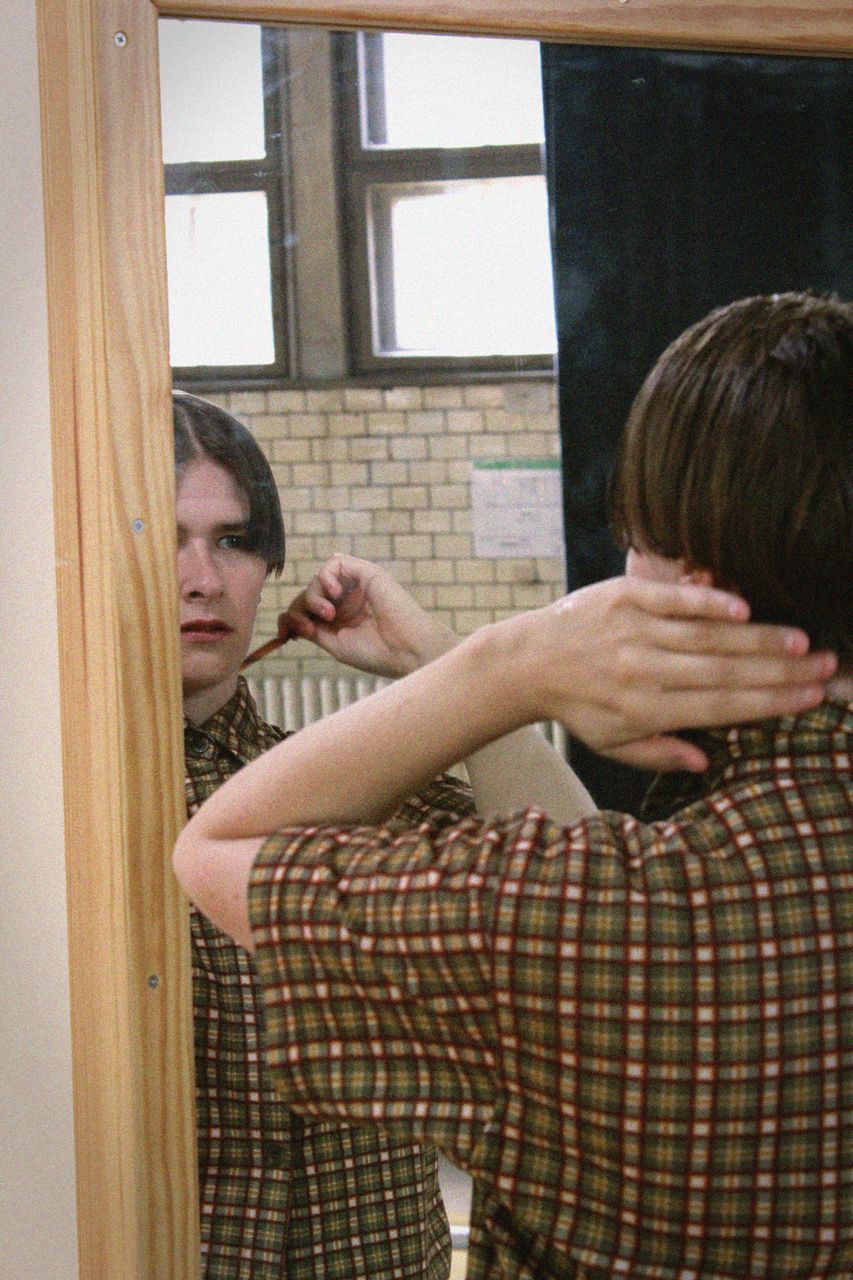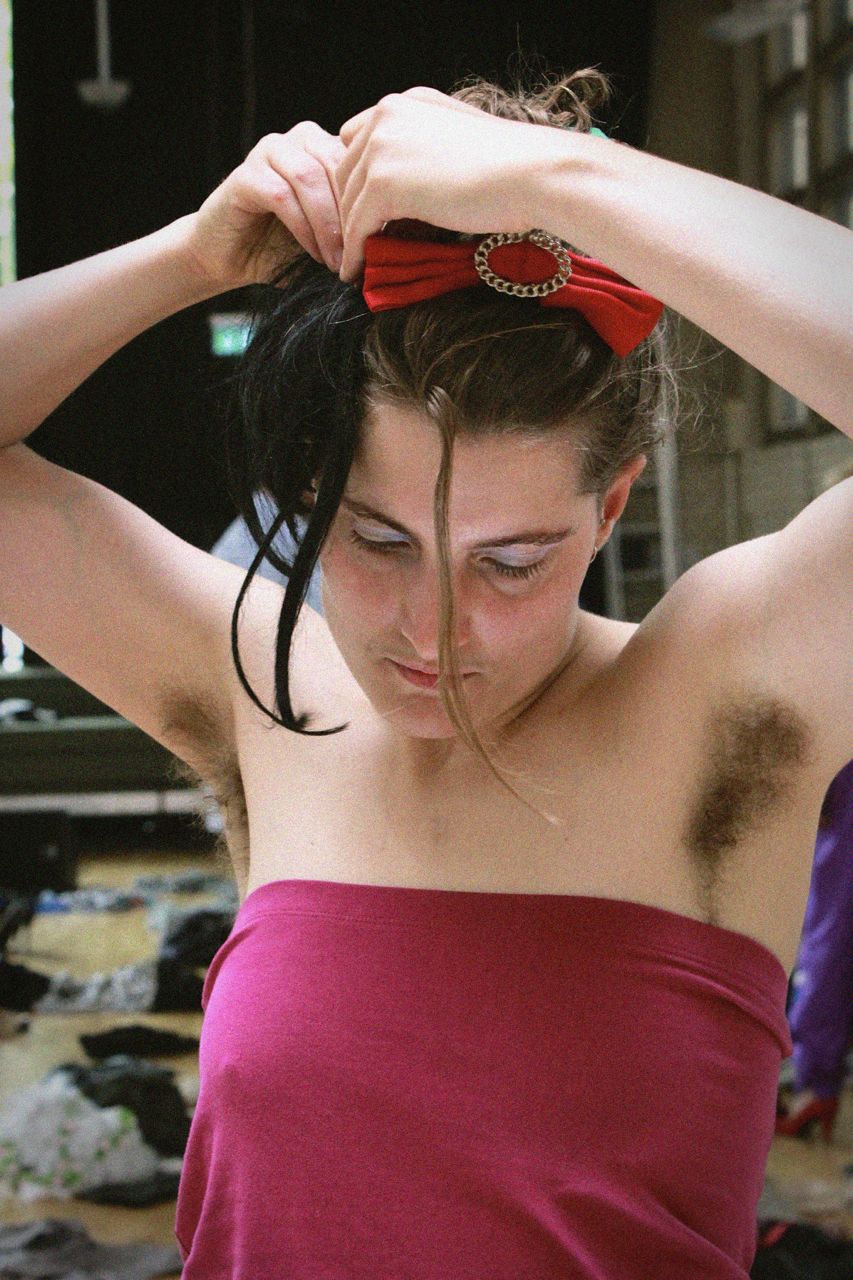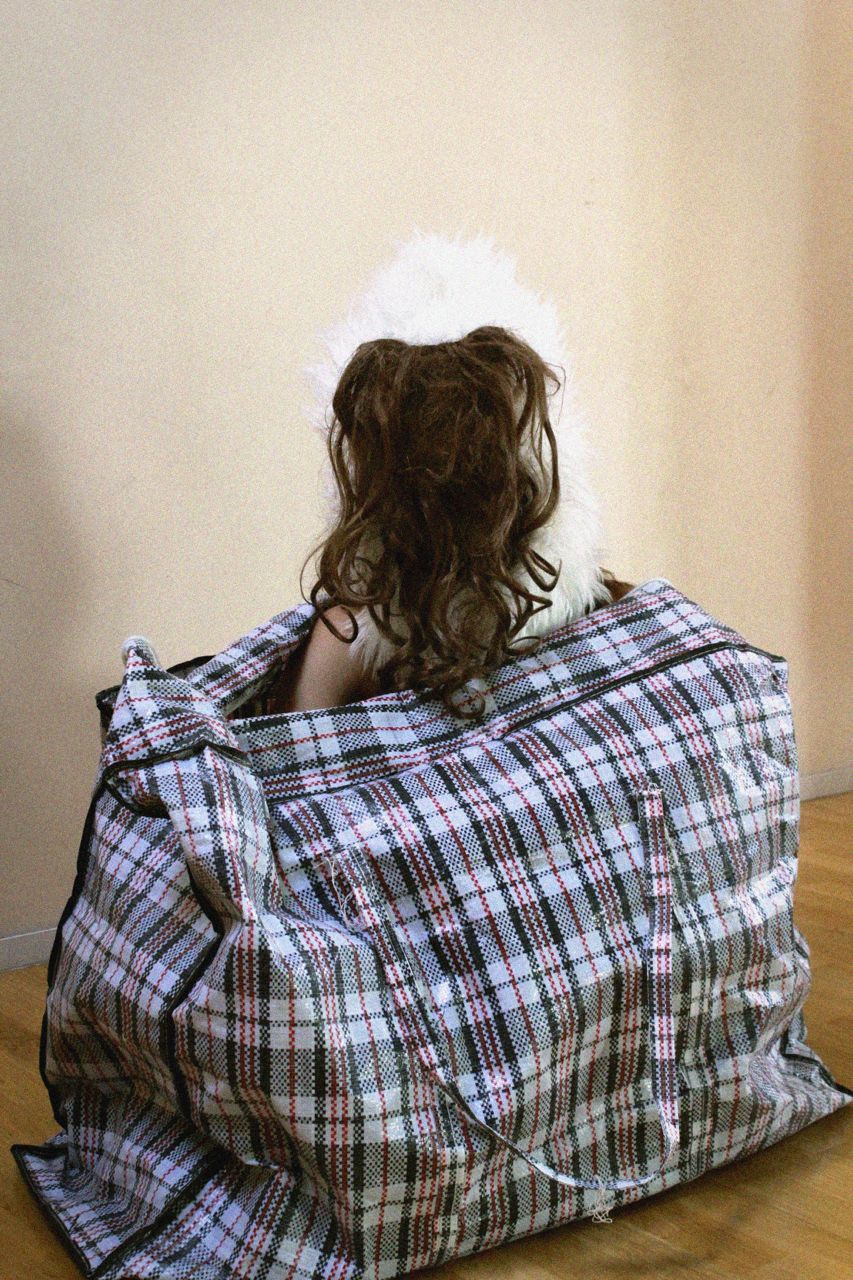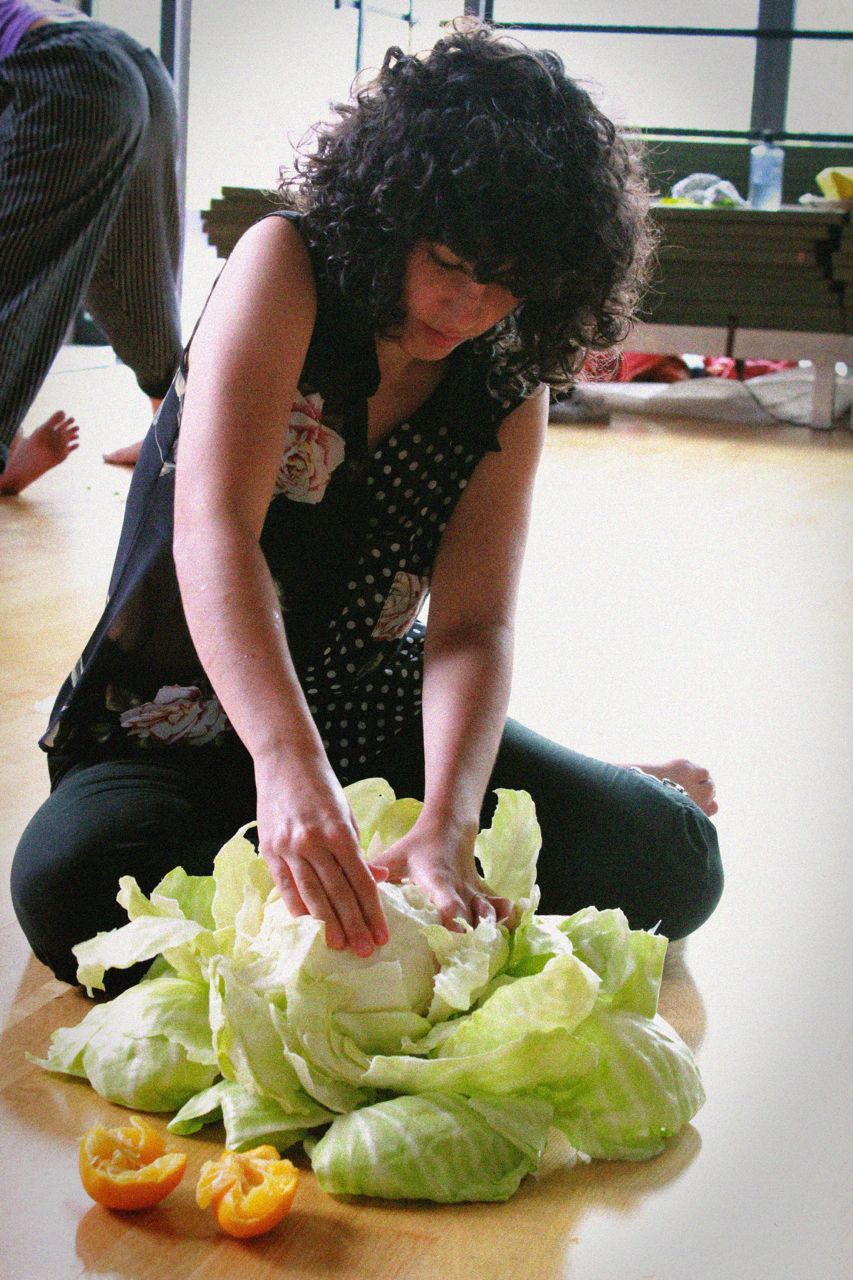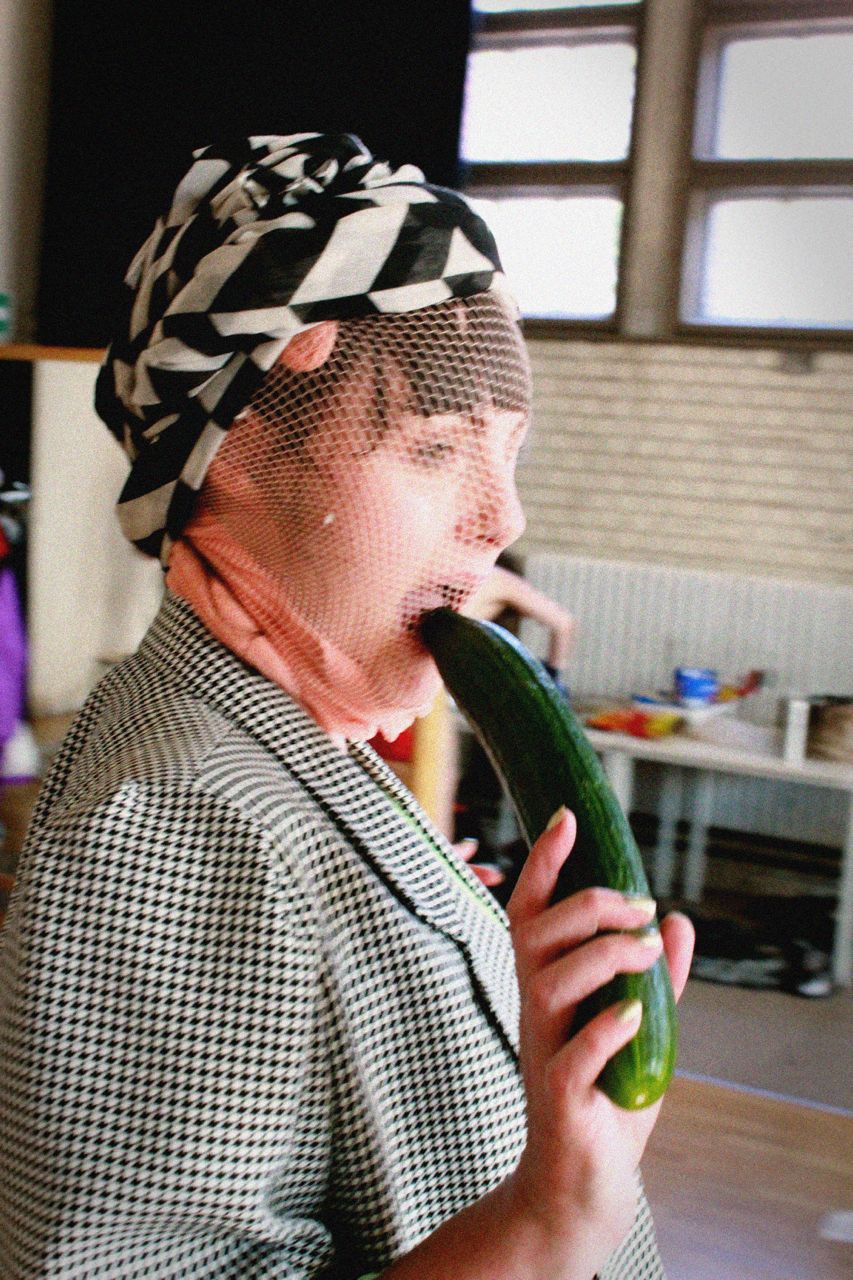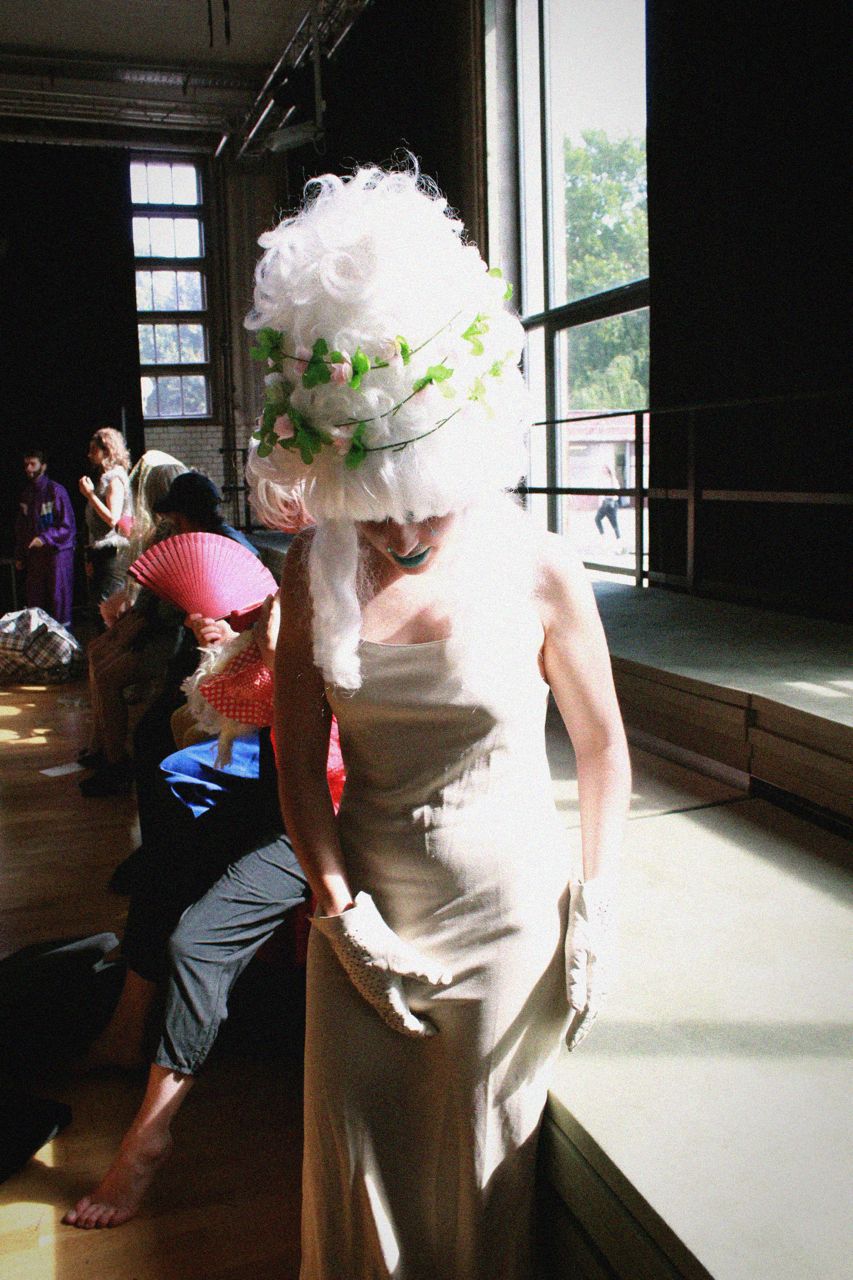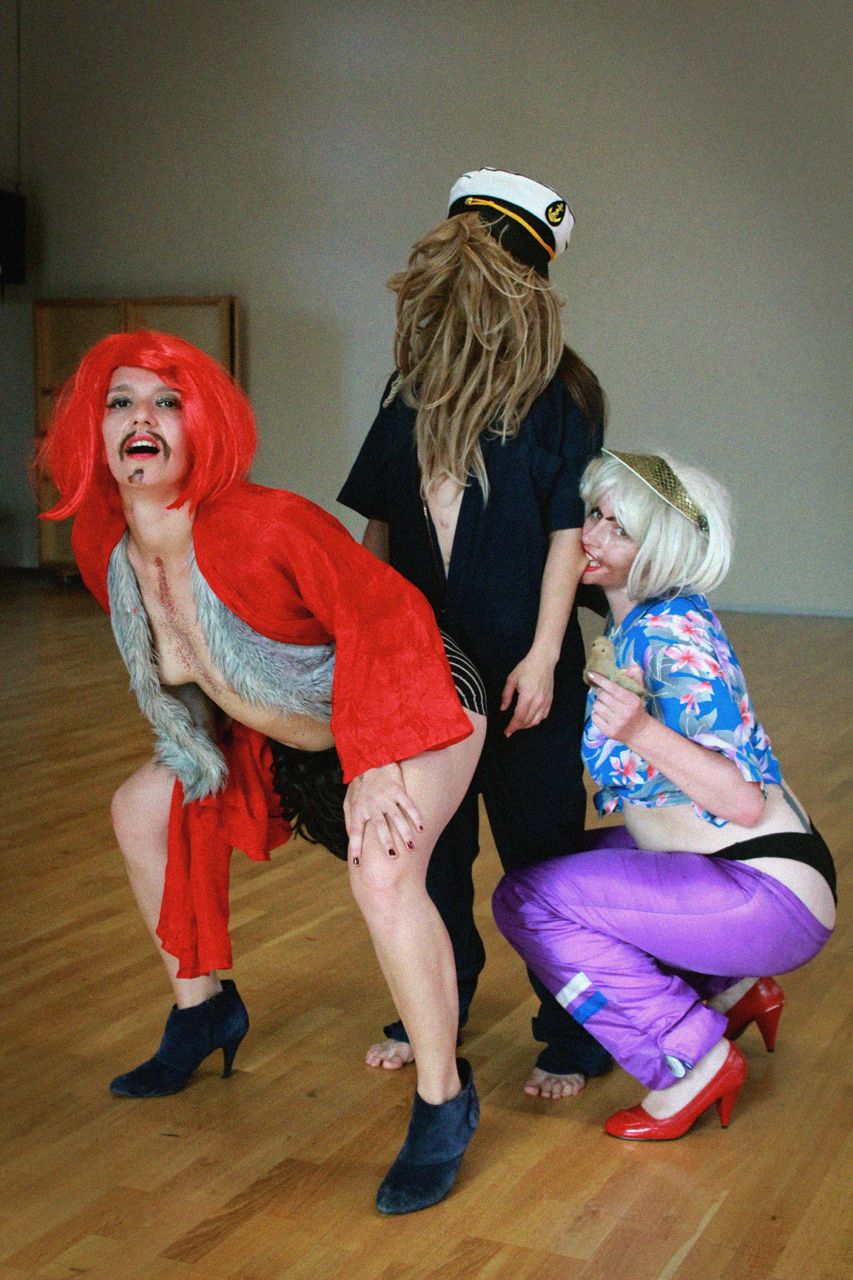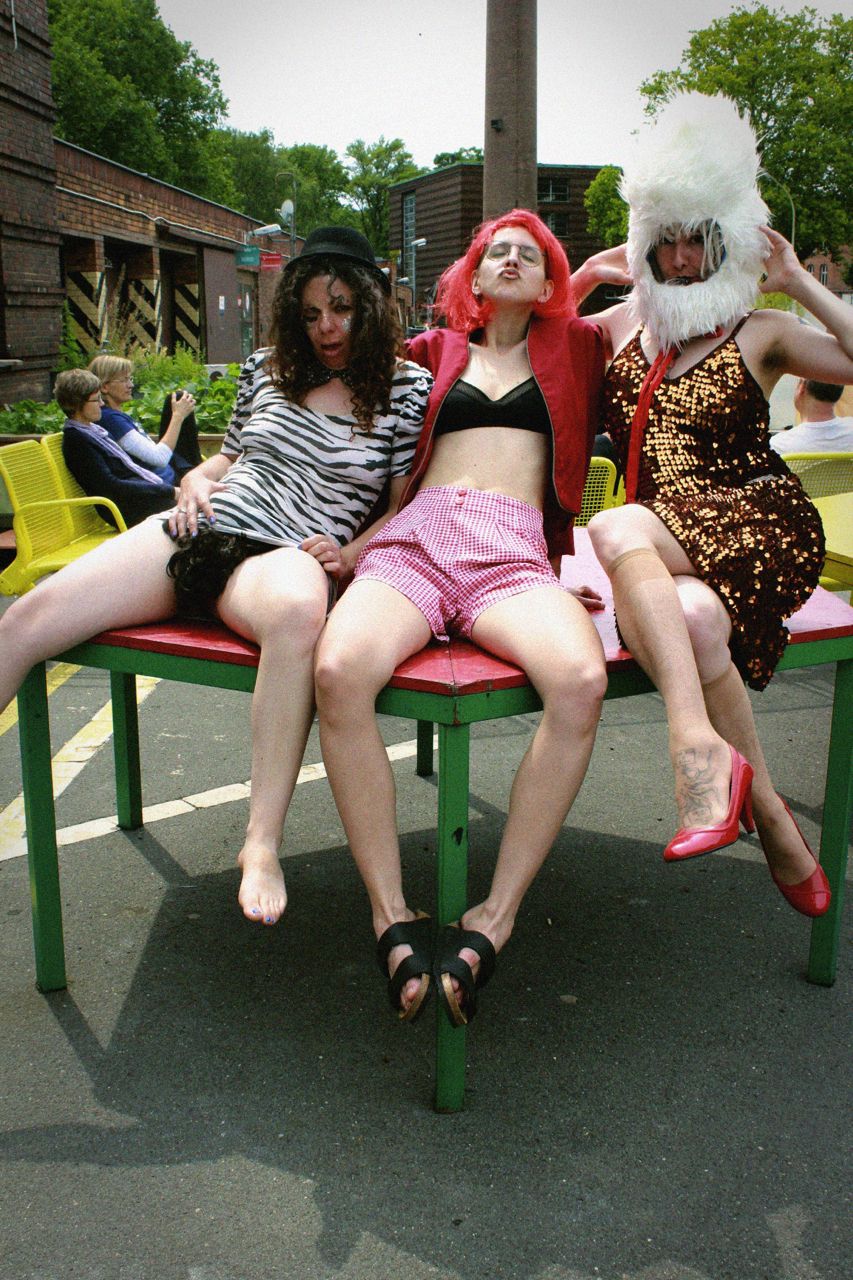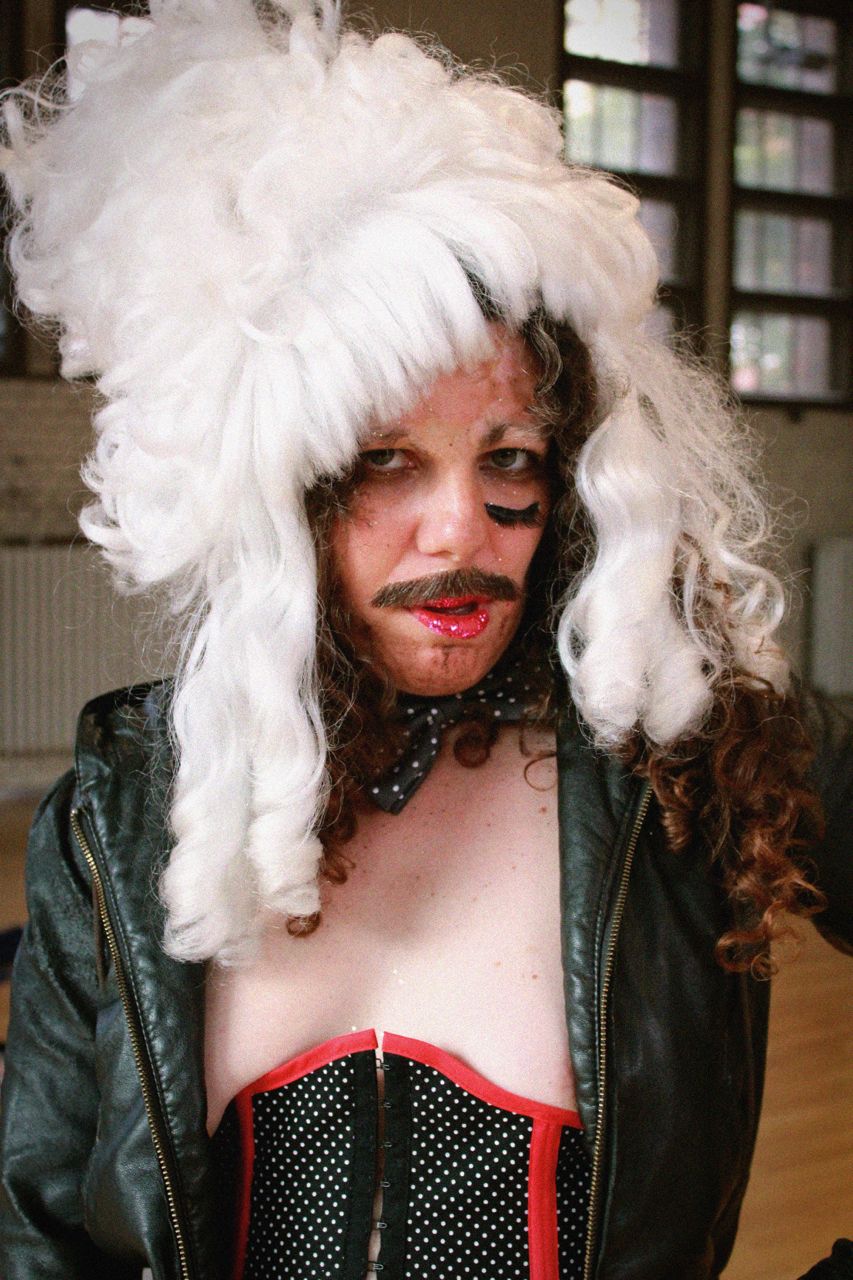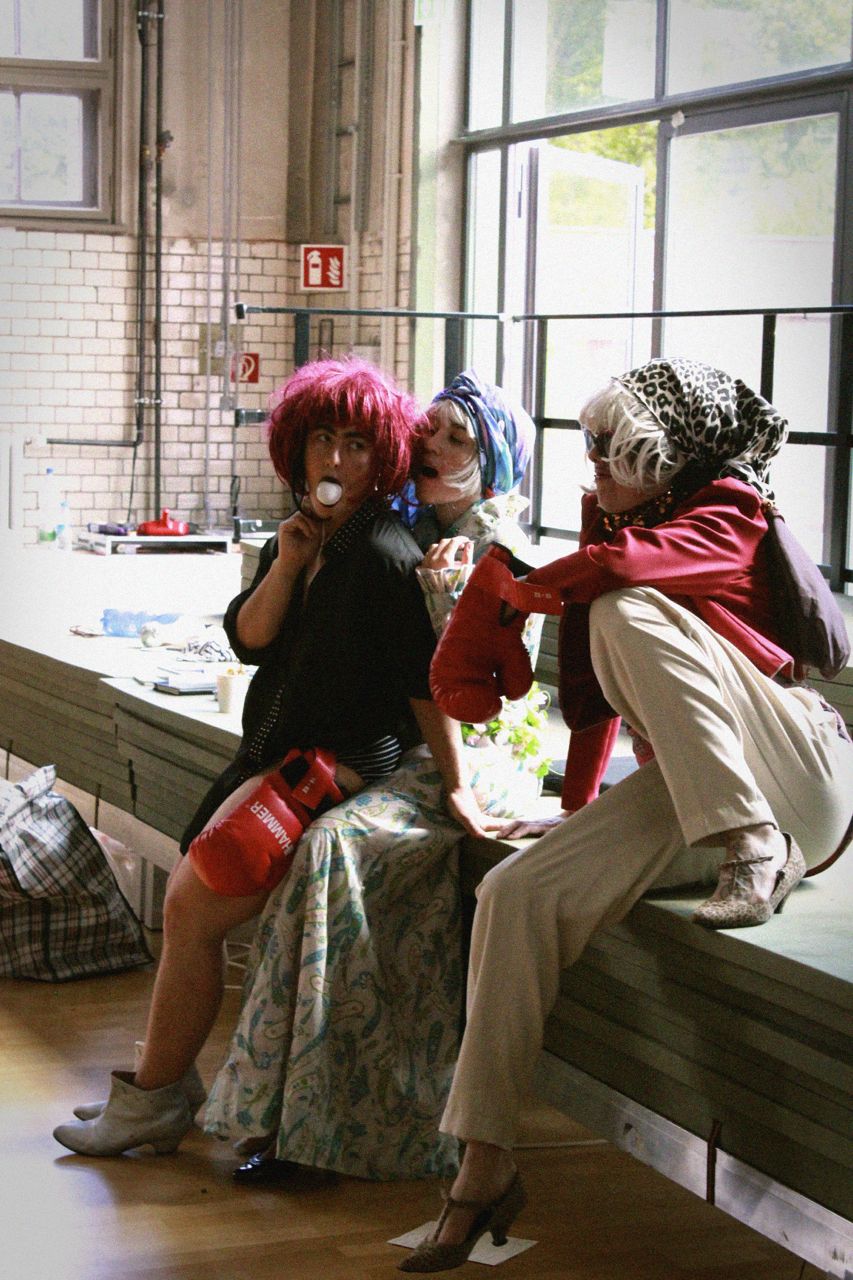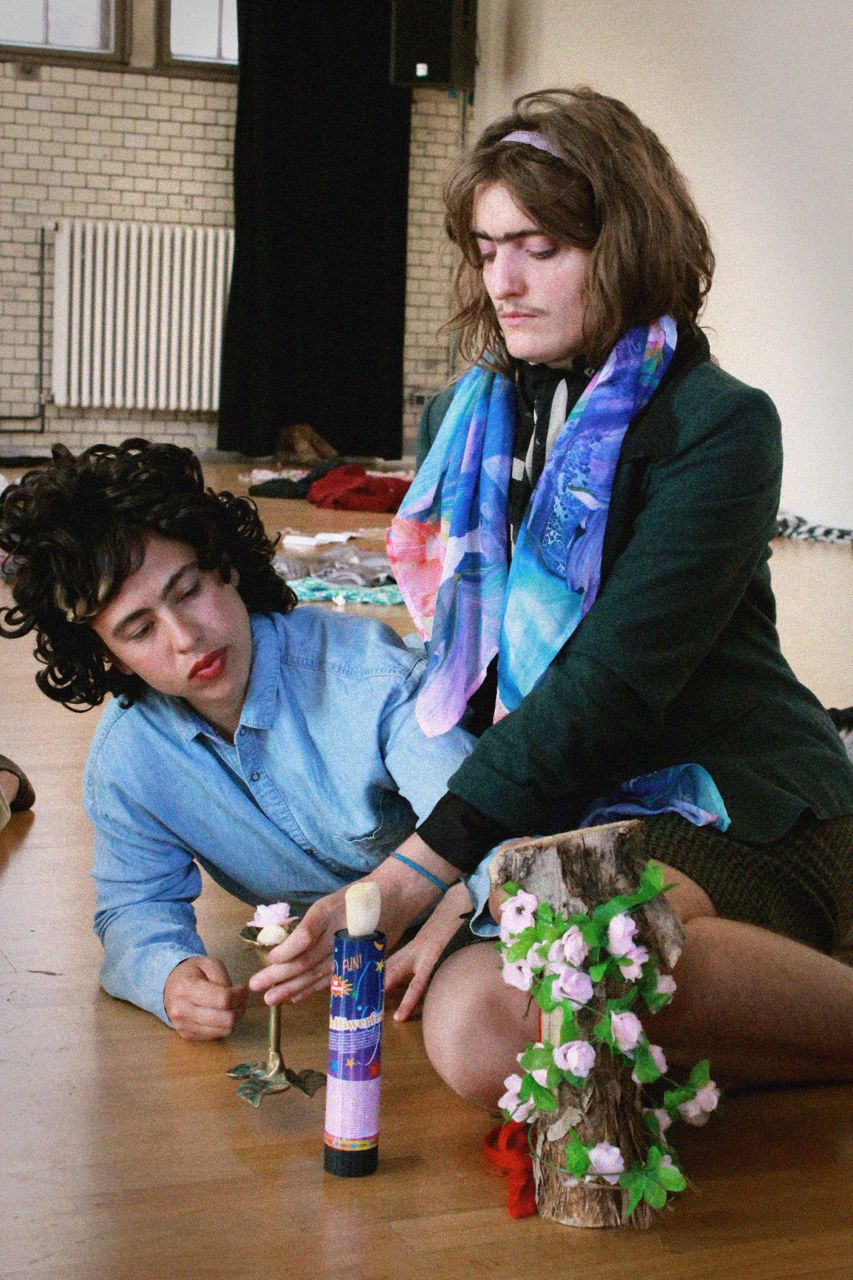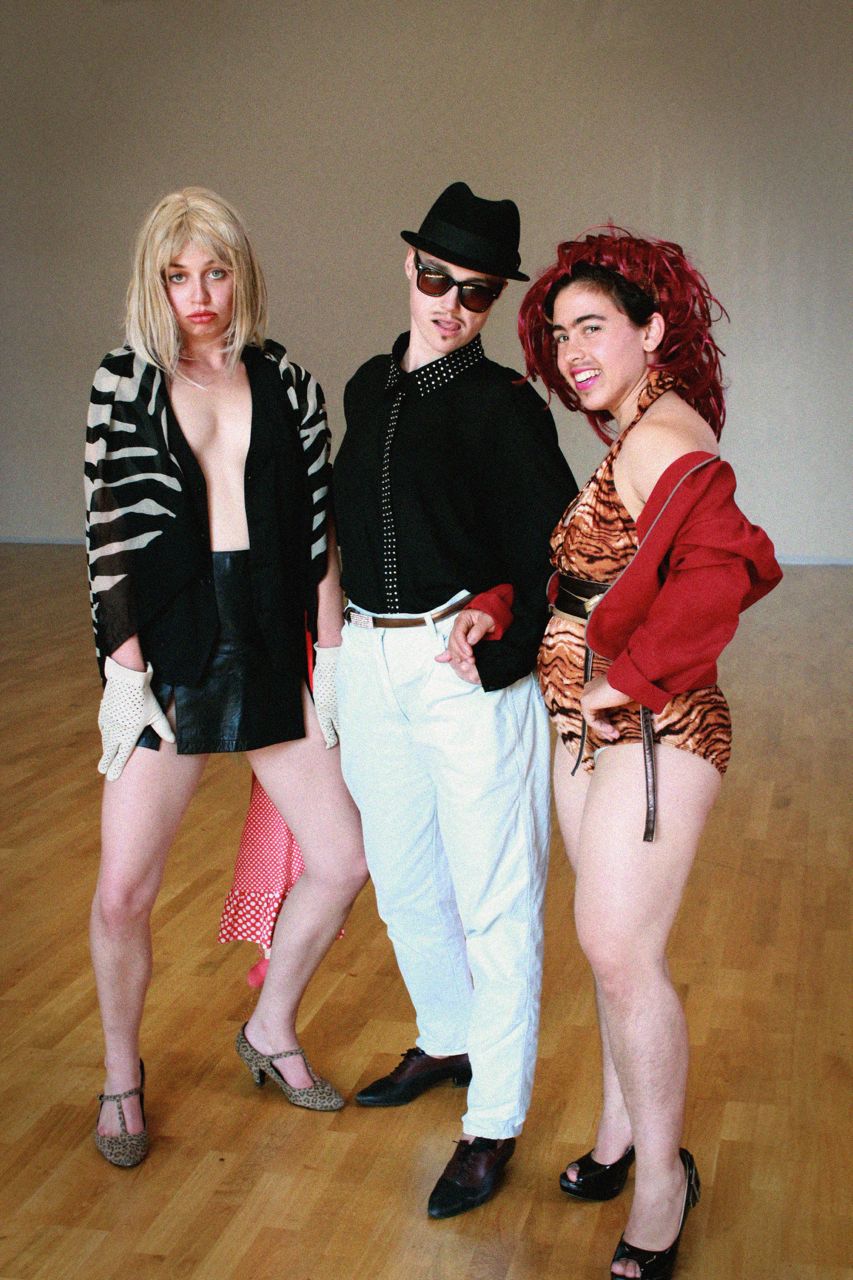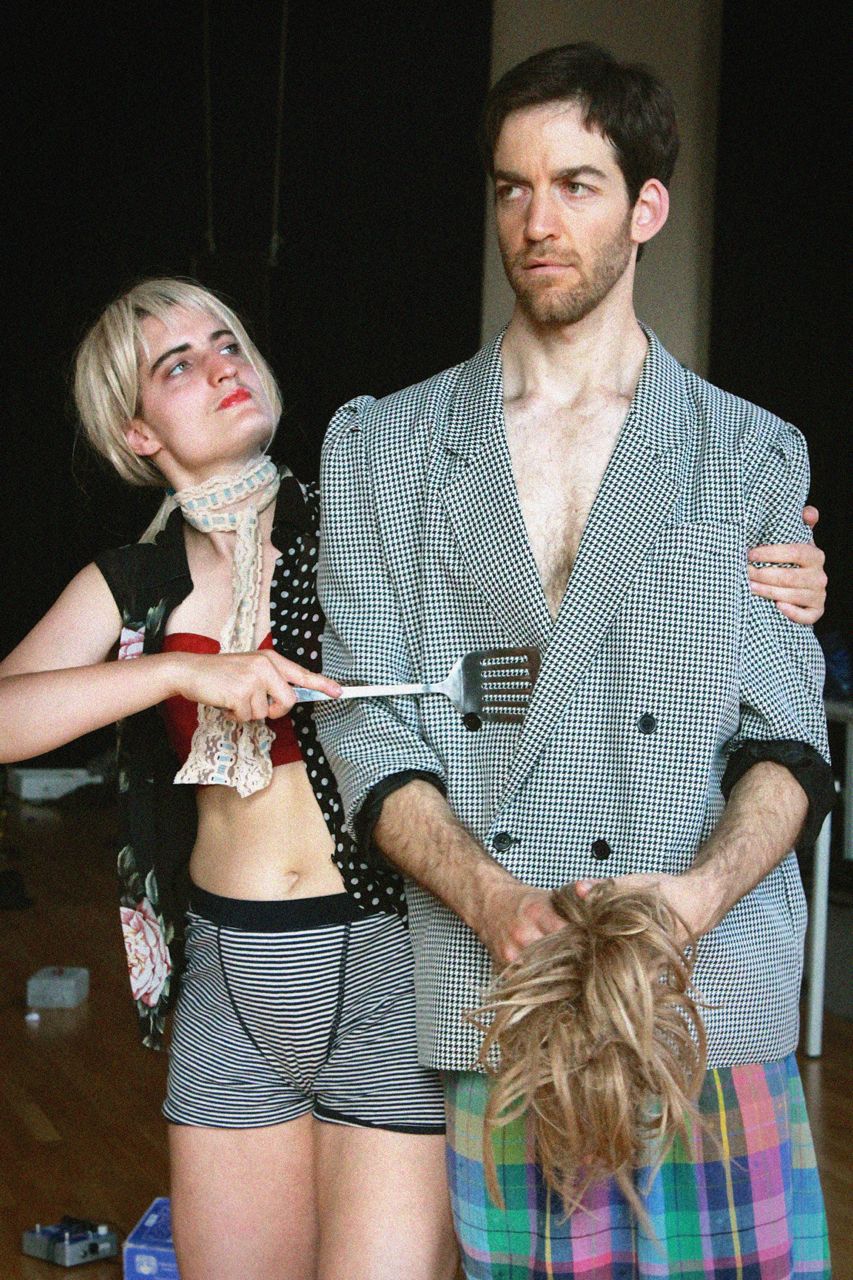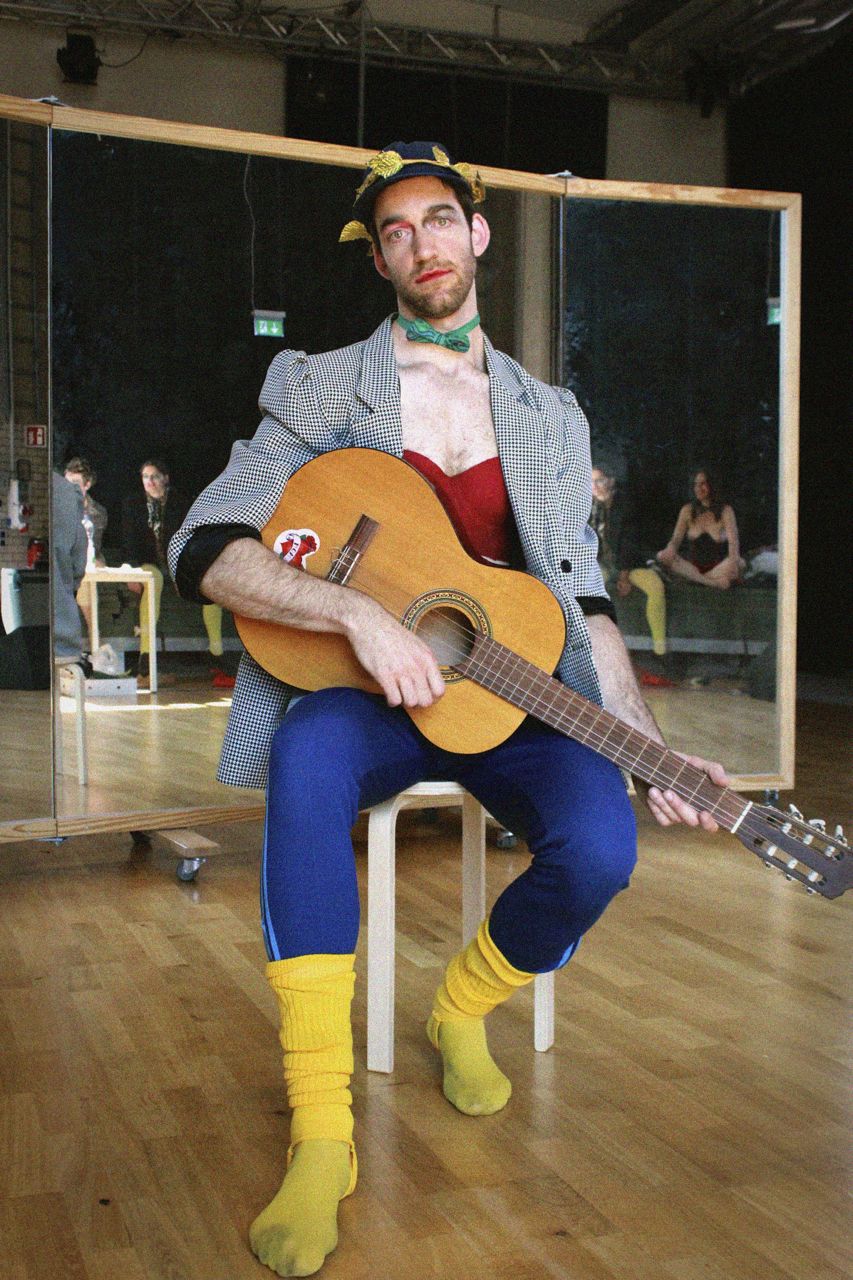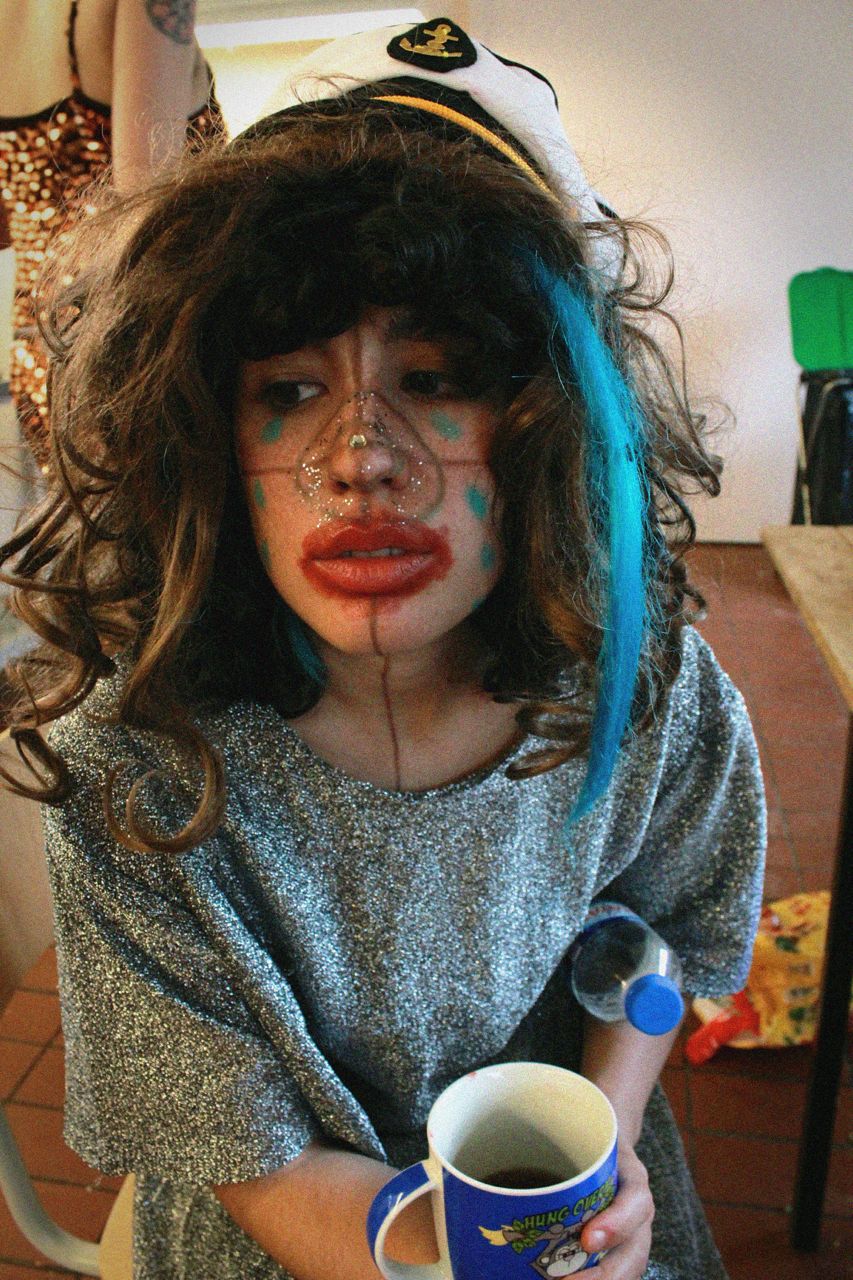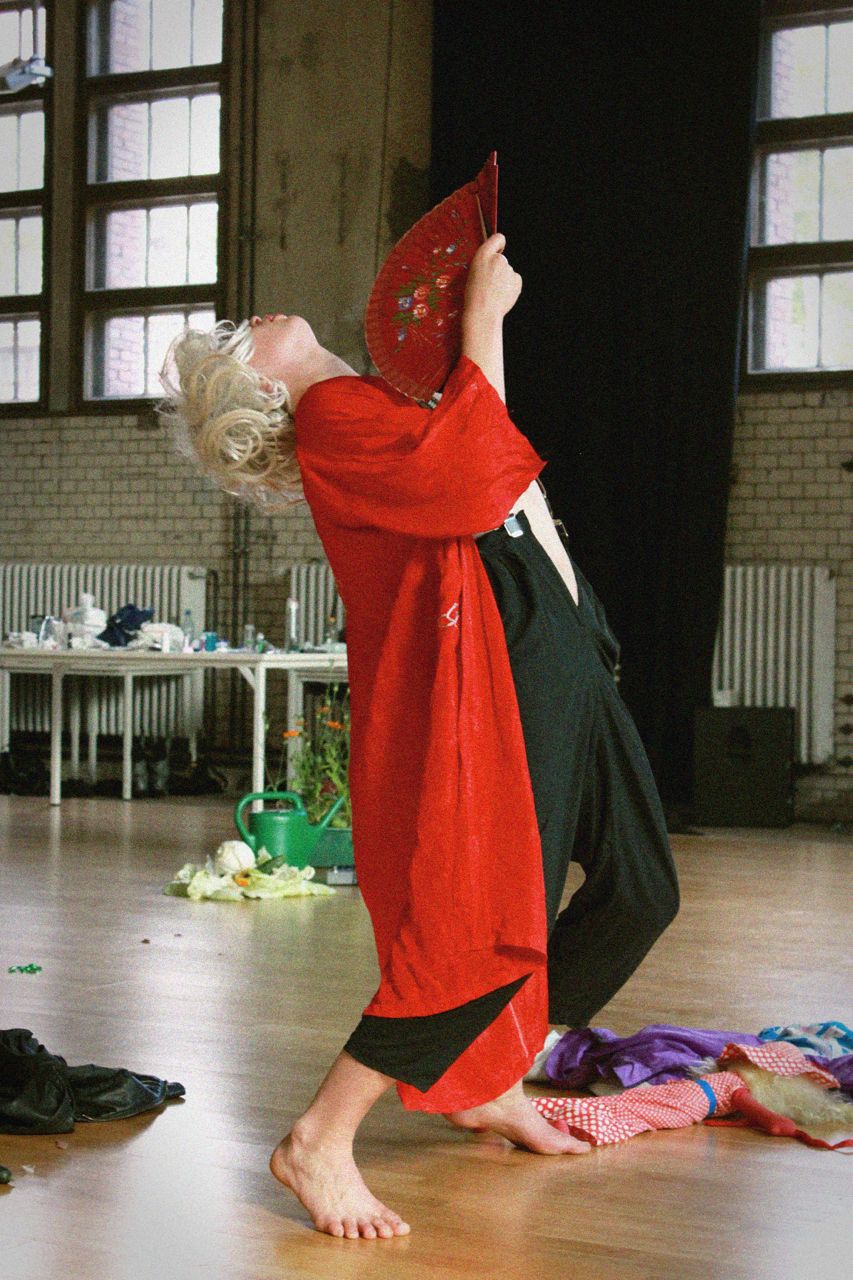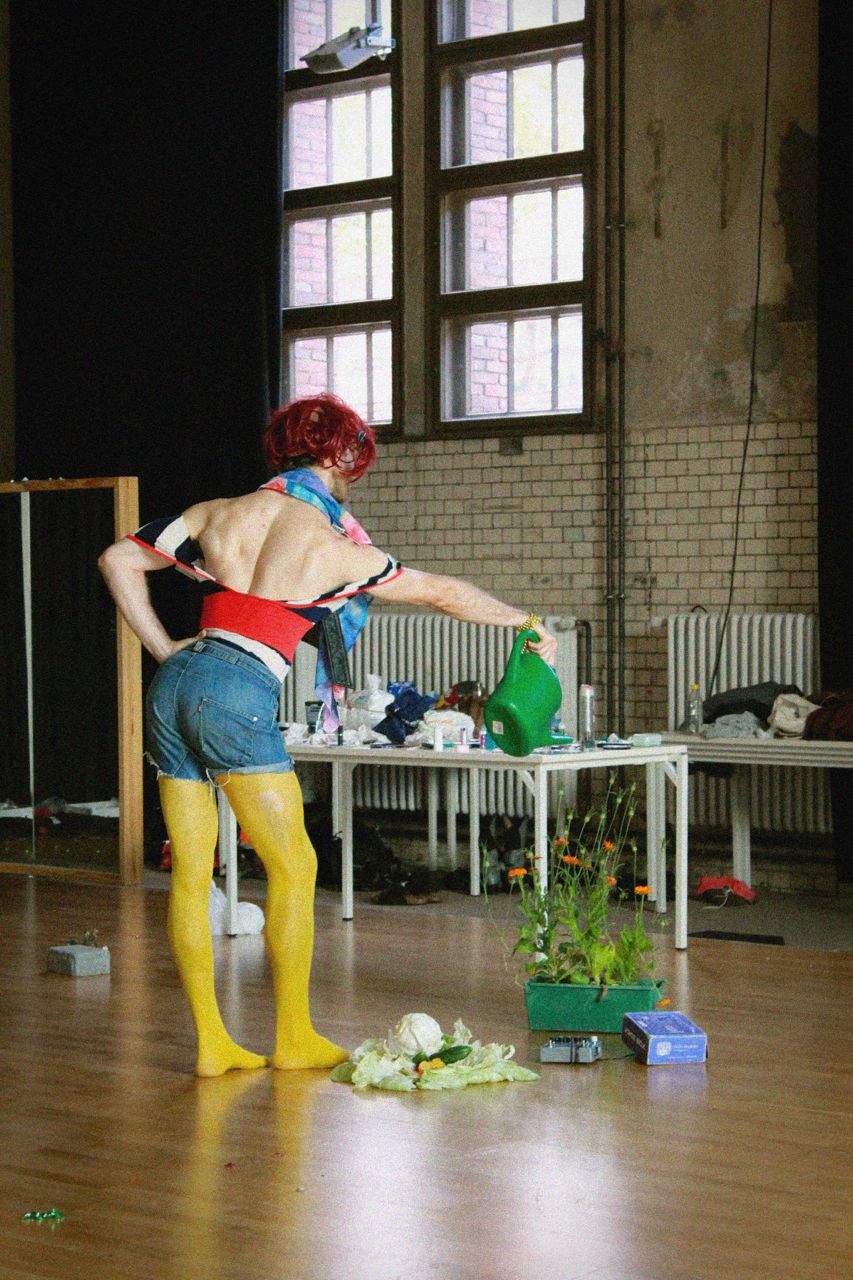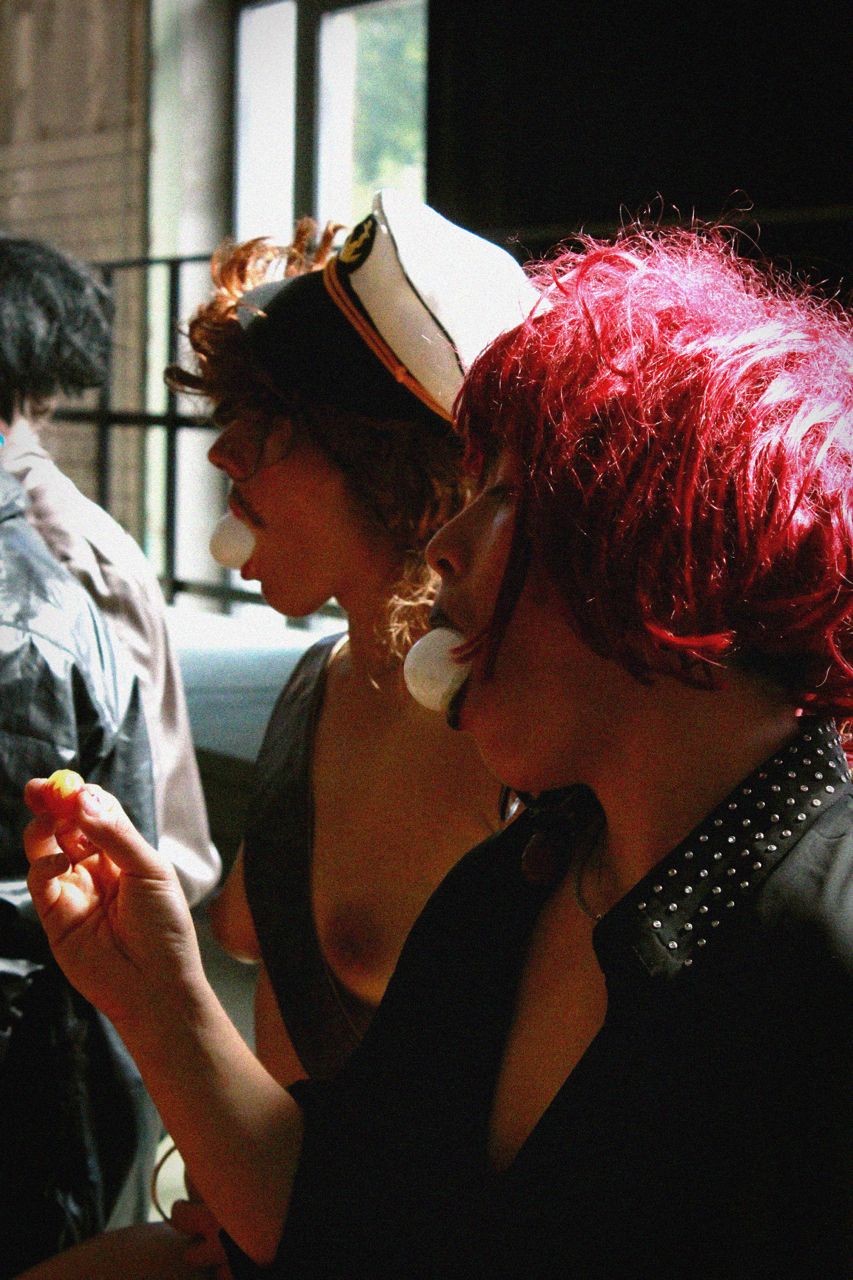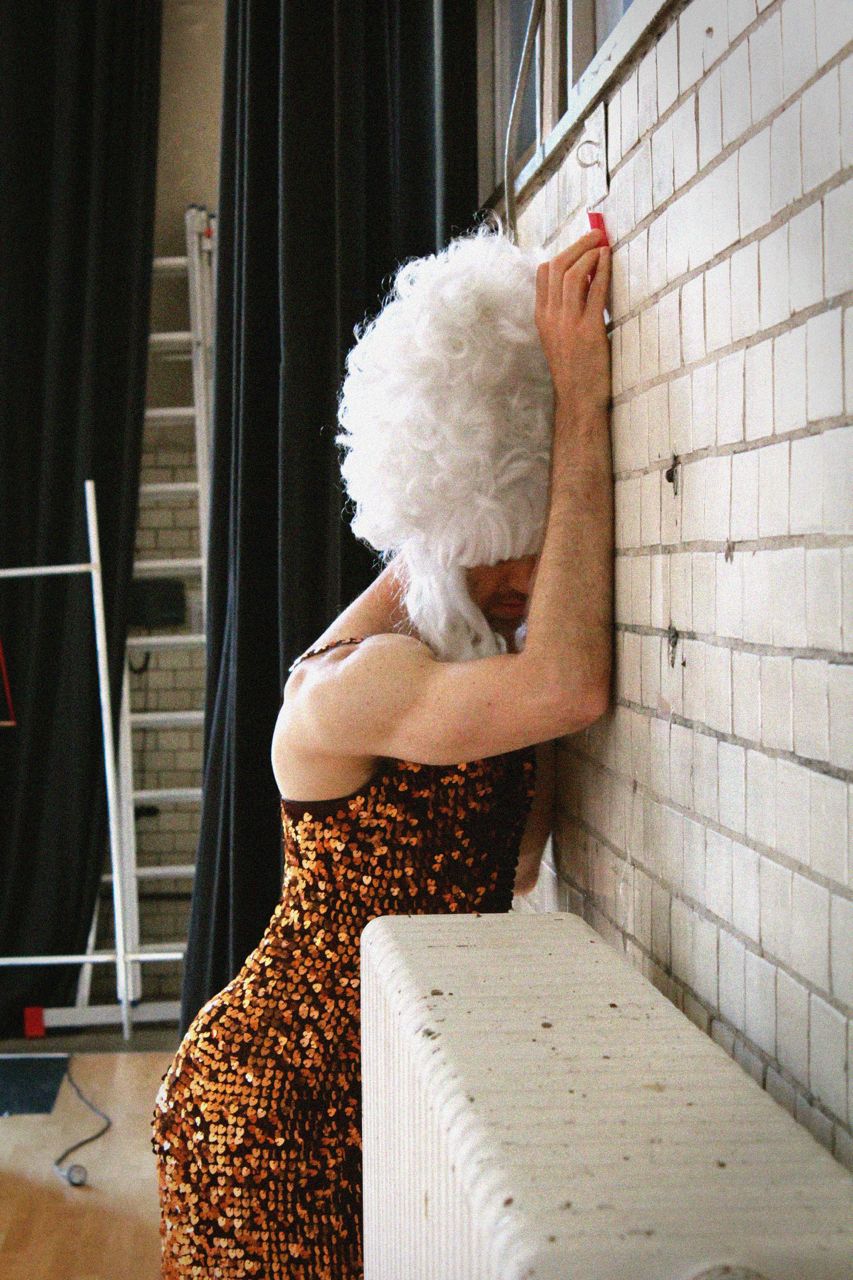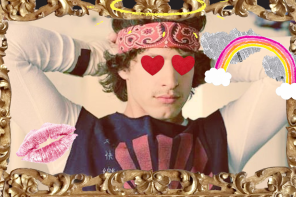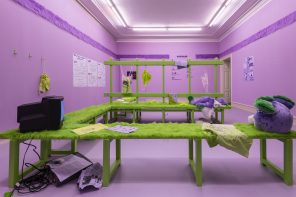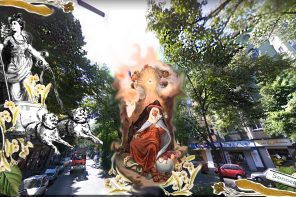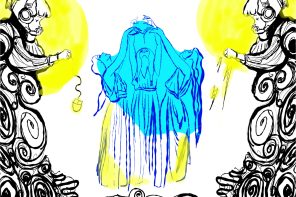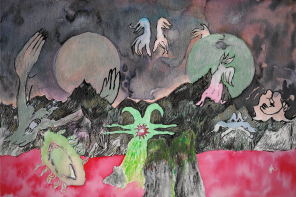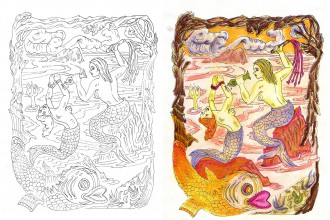Last July, I was invited to take part in a drag workshop that focused on the sensations of gender and the pleasure of drag, facilitated by Zinzi Buchanan (Steve) and Sheena McGrandles (Sam). The Berlin-based collective Female Trouble, a platform for artistic, intellectual and political exchange, organized it. An active actor in the city, this collective asks “What is Feminism today?” and facilitates a space to question gender-related stereotypes and social constructions. Both topic and frame sounded interesting and daring to me and, tempted by the prospect of discovering a new perspective on my own body through drag, I decided to join this eccentric couple in their gender-bender adventure:
Steve and Sam are sensationalists, committed to the exhibition of themselves. Smashing out one hit wonders for your pleasure only. They tackle contemporary themes such as fruit and veg, (glow in the) dark scenes and loop machines, homoeroticism and metrosexuality, pussy, cunt and phallic objects – they are the hottest, dirtiest drag show of this century.
With this intriguing, sexy and slightly intimidating introduction, I couldn’t wait to meet Steve, Sam, and myself in drag.
We started by digging into the universe of female masculinity with a screening of the documentary “Venus Boyz”, which is about stage representations and expressions of this branch of drag performance. While I watched those drag kings perform and master masculinity, it occurred to me that gender might work the way languages do. Even if one’s mother tongue is not wired in one’s brain, it shapes they way one is and thinks, and it has been assigned from the moment of birth. As for me, femininity is my mother tongue. I learned femininity and I ended up mastering it. Now I perform it perfectly: I feel as comfortable doing so as speaking my mother tongue. But that doesn’t prevent me from speaking and learning other languages. Would I be able to be fluent in masculinity? Could I perform it without showing a thick accent?
During the warm up exercises we used sensation, sound making, tactility and taste. We chewed, we licked, and we looked each other in the eye in a way I never had before. I had not exchanged a single word with some of the people I was touching, and it felt right. Everything was allowed, yet everything was safe. The participants were mostly dancers and you could tell that they felt very comfortable with this kind of physical interaction. I felt uptight in comparison, and I wished I could also moan in a room full of strangers without blushing. I tried, but I couldn’t help to feel like I was a cat in pain, clumsy and a bit grotesque. I realized that it’s the simplest challenges, the sheer bodily ones, which are most difficult for me to accomplish. How empowering it feels once you jump into it!
The experiment went on and we arrived to the dressing-up part, where we were encouraged to liberate ourselves from gender stereotypes and allow the blurring of categories, the abstraction of drag. But it took me more guts than expected to leave my female-identified comfort zone, and I didn’t really know how to customize my appearance in order to present myself in a more masculine way. In a sad effort to mutter my first words in this new language, I ended up impersonating a mermaid with a package.
However, it didn’t take long until I started playing with masculine props. I realized that the harder I tried to stick to typical masculine characteristics, the less my performance worked. It was about breaking stereotypes, testing the clear and unclear borders of drag, and pushing out of the character we use to present ourselves to the world. It was about finding security and sexiness in passing as “the other”, and putting the crown on our weird, misfit, queer heads. With the help of Steve and Sam, the peasants climbed to the throne and celebrated their quirkiness in the midst of wigs, fake mustaches, sport socks and glitter.
Through this kinky exhibitionism and extreme gender-bender performativity I was able to figure out that the concepts of masculinity and femininity as a way of self-representation are too restrictive. Although I had expected a more traditional experience in the field of gender crossing and learning to pass as the opposite gender, I was glad I encountered this celebration of freedom in order to remind me that, as RuPaul once said, “we are born naked, and the rest is drag”.
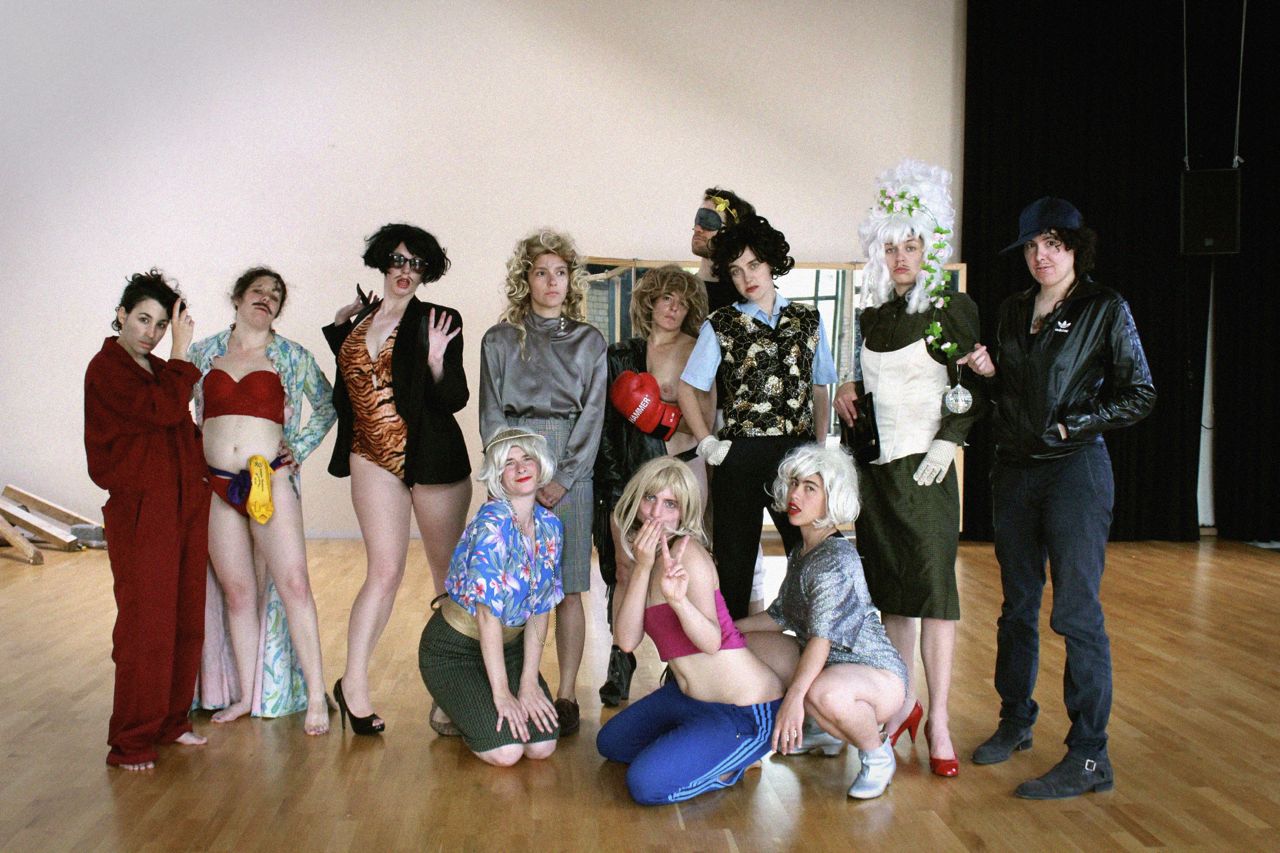
Words by Lo Pecado
Visuals by Judy Mièl
Special thanks to Female Trouble for making this happen
